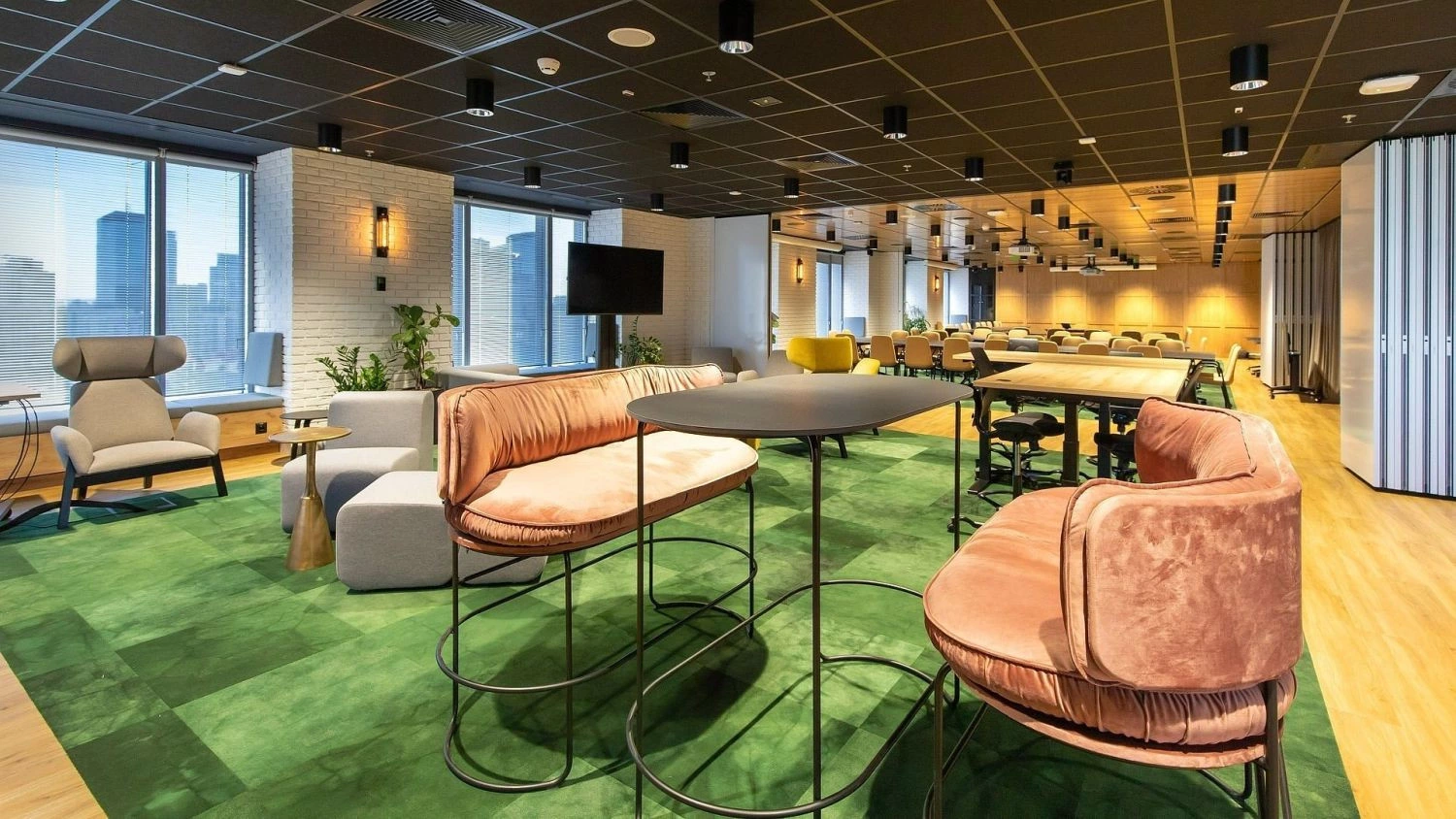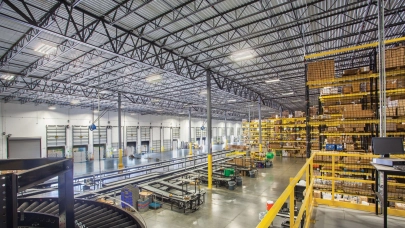
After four years of a pandemic-induced disruption it is now clear that although hybrid working is not the dominant pattern, it is here to stay. New research from Cushman & Wakefield has found that 27% of Polish people combine in-office attendance with home office, whereas that figure for cities with a population of over 500,000 stands at 36%. Meanwhile, employers and property managers keep looking for ways to incentivise employees to come to the office more frequently. Employees working hybrid schedules value the office particularly for well-equipped spaces for focused work and for fostering collaboration and relationship building, reveals the report from Cushman & Wakefield. At the same time, 47% of respondents are against being mandated to work a fixed number of in-office days.
One in three office workers in Polish cities with a population of over 200,000 work on a hybrid basis, the survey commissioned by Cushman & Wakefield has found. The Polish labour market has also adapted to the new expectations of some job applicants since 2020. In mid-February 2024, one in five job openings provided an opportunity to work hybrid and one in four to work hybrid or remotely - the same figures as three months earlier.
"Market data confirms that there are many who split working time between an office and home, particularly in the largest Polish cities. Many employers allow such protocols, but from the point of view of organisation and corporate culture building they would prefer to see higher in-office attendance levels. That’s why we sought to find out straight from the horse’s mouth what actually attracted those working hybrid to the office. Being able to meet more coworkers face-to-face was cited by 44% of the survey respondents. Logistics was also very important, with ample parking spaces and the office location near a public transport stop being key to 45% and 28% respectively", says Ewa Derlatka-Chilewicz, Head of Research, Cushman & Wakefield.
According to Cushman & Wakefield’s data, office occupier activity in Warsaw in the last 12 months was largely driven by a trend towards optimizing and downsizing office footprints. This is borne out by the number of transactions, which was up by nearly 18% compared to the office take-up in the peak year of 2019. At the same time, the structure of demand in 2023 was dominated by relocations which accounted for approximately 53% of all deals. This shows that employers are adapting their operating models to changing market conditions, frequently prioritizing the quality over the size of the office. This in turn benefits the owners of centrally located class A office buildings meeting strict ESG requirements, both in terms of environmental aspects and employee health and wellbeing.
The advantages of the office: more socializing and a comfortable work environment
71% of Polish people working hybrid value flexible work arrangements, but more than half enjoy meeting larger groups of colleagues in the office. In addition, only 12% would embrace working fully remote or on-site. Meanwhile, 28% of respondents say that human connection and social bonding have suffered as a result of off-site work.
"Only some of us have the right conditions at home that foster productivity and well-being during work. No wonder one in three employees say that the office can offer invaluable support when they need space for heads-down work – for example, during a home renovation or other temporarily challenging living conditions", adds Ewa Derlatka-Chilewicz.
Office fit-out and quality were also relevant to the surveyed employees – what encouraged them to be in the office was a nice and modern office design (38% of respondents) and high-quality internet connectivity (35%). The vast majority of the survey respondents (85%) are open-minded about the transformation of offices so that they better address the needs of hybrid working, including a greater focus on teamwork and quiet rooms.
"Our research findings on the importance of commutes, parking spaces and office uses to office workers are extremely valuable to companies that are about to decide whether to remain in their current office or to move. This is especially the case since not all employers are ready to craft workplace strategies that would take account of the analysis of employees’ needs and opinions. In such a situation, when it comes to choosing assessment categories for a new location, it is worth remembering that the advantages of the office according to Cushman & Wakefield’s respondents include access to a diverse range of F&B options (24%) and purified and filtered air in the building (24%)", explains Mariola Bitner, Head of Workplace Strategy, Cushman & Wakefield.



